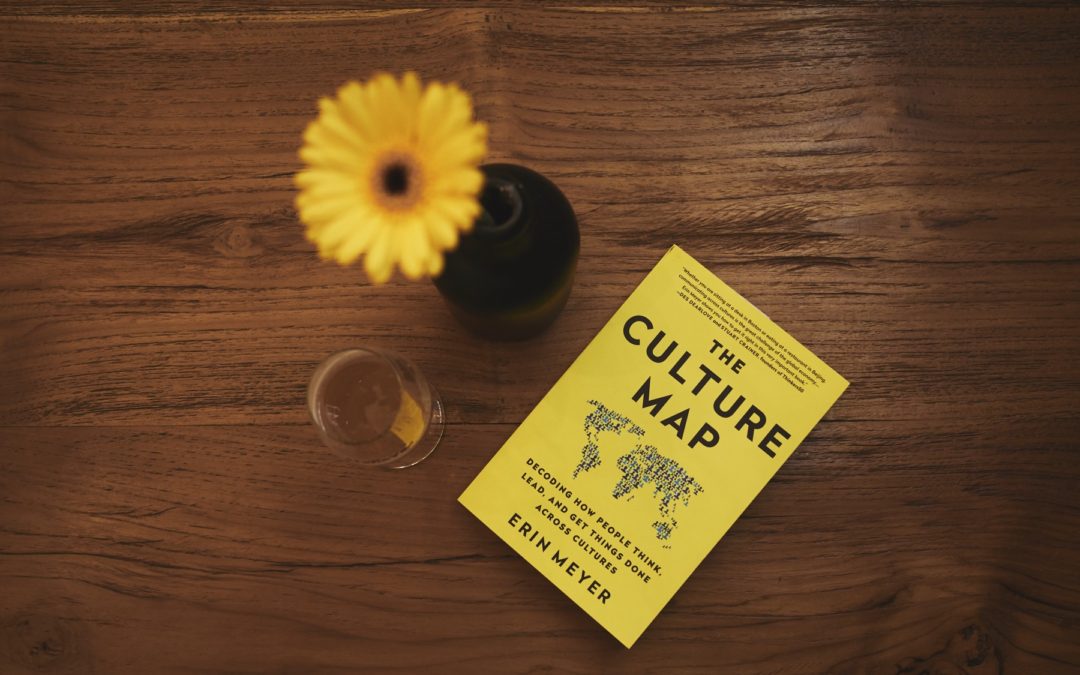Whenever people learn that I helped to formalize Coffee Chats and institutionalize “The Mentoring Circle” (TMC). The eventual question that people often ask is: “How do I join TMC?”
We are a young organisation, just shy of two years since it was a mere idea. Yet, this question stands testament to the influence and charm of an organisation with good culture. I hope we do not rest on our laurels, and such culture continues.
“How do we get in naturally altruistic people into TMC?”
When TMC started, we knew that we had to get our culture right. As everyone knows, culture > branding. Culture eats branding for breakfast. Culture sets the branding and is the steering wheel to the great ship.
Since TMC was all about people and relationships, we had no other asset or competitive advantage — the quality of people we get determines our culture and our net worth. We had to get “great” people in. And after many deliberations before bed time, in our shower cubicles and many passionate meetings, we defined “great” to be “naturally altruistic”.
Thus we thought: “How do we get in naturally altruistic people?” This led to the committee structuring questions and scenarios that tease out these qualities in our interviews.
However, most systems that we structure to sieve the wheat from the chaff are imperfect. Real life rarely fits in nicely into a matrix such as the prisoners’ dilemma — which only has binary options.
Real life is far from binary. It is not 0 or 1, yes or no. Real life consists of shades. There is “YES!” and “yes”. Real life is not only non-binary in signalling, but in declared and revealed preferences. A “maybe” might be a “no” to one person, and “yes” to another. What’s worse is when people are confused and did not intend to actually say “maybe”, or that they are confused internally to begin with and was not prepared to give an answer.
In TMC’s case, the features of our pool of candidates are extremely hard to model to obtain optimality and find “naturally altruistic people”:
- Number of students applying (numerous players)
- Lack of knowledge of one’s incentives to join TMC (imperfect information of payoffs)
- Misrepresenting one’s own real value to TMC in both overestimating and underestimating one’s abilities (the signal vs the noise)
- Students don’t have to join TMC solely to get mentoring (multiple strategies per player)
Thus, TMC interviews are a dynamic multi-player game where incentives and information are revealed at each turn, and are difficult to predict. Nonetheless, with each successive Circle, we believe that the committee is able to arrive at an optimal silver bullet system that teases out such qualities, by refining our “separating equilibrium”, thus choosing future members in TMC that truly embody our values. (1)
Of course, the trick in separating “naturally altruistic people” will remain a secret, which has to remain dynamic (somewhat similar in how the central bank does money surprise). It will be interesting if we can reveal the trick one day, and still return optimal results of revealed preferences.
Yet, this begs the question. What does “natural altruism” mean?
What does “natural altruism” mean?
Before we proceed, we have to define what altruism is. The dictionary states that it is a “disinterested and selfless concern for the well-being of others”.
I had this conversation with Daylon Soh in the middle of this year — 2018. We share a similar passion for mentoring others, and giving back to society and making Singapore a better place.
However, he had a simple contention. Humans are not naturally altruistic. Even if they give of themselves sacrificially, they receive the value of peace in their hearts and joy of giving. The very “peace and joy” is an incentive, conceptually no different from an incentive in terms of physical or monetary value. Thus, he opined, based off Ayn Rand’s virtue of selfishness and rejection of altruism in her seminal work “Atlas Shrugged”, that even the “best” of humans give because they receive an incentive in return. (2)
I had not thought about this point at that juncture, so I had nothing good to answer him. Nonetheless, conceptually it did make sense, that by virtue of peace and joy being incentives, there is no true natural altruism.
During our Cornerstone Youth Camp at the end of 2018, I posed this same question on whether humans can be naturally altruistic. We were covering the Fruit of the Spirit from Galatians 5:22–23, of which the agape love was part of this fruit. Our conclusion was that for a Christian, the source of the agape love is different. Thus, we sacrifice of ourselves to others based off a different source — which is our faith in Christ. Nonetheless, it left me somewhat dissatisfied with the answer, as it did not really answer the question fully. What was so different about a Christian? Does he not receive the incentive of peace and joy in his or her heart? How then can it be true natural altruism?
Yet, I managed to find the answer in a commentary by Bishop J.C. Ryle on the book of Luke that our church posts on WhatsApp each morning. This passage spoke of the woman who washed Jesus’ feet and wiped them with the hairs of her head. And the secret for this sacrifice and honour showed to Christ was her love for Him.
“The fear of punishment, the desire of reward, the sense of duty, are all useful arguments” but they are “all weak and powerless, until a man loves Christ.” — J.C. Ryle
Therein lies the answer shining in my face as I took the train in the morning to work.
Extrinsic incentives such as fear and reward, combined with intrinsic incentives like duty, peace and joy are nothing compared to when one loves another.
Love is the ultimate reason why someone will sacrifice and show altruism.
Why will they show love to strangers?
Which we must again ask why to. Why will they love the other person with such vigor and sacrifice? And in many situations, this other person is a stranger that one has no ties towards?
Why would I help a junior whom I may not fully know? Why would I put my time and effort on the line? Note that this is disregarding all incentives of having bolstering your reputation; getting favors out of the junior in the future.
It is because someone else showed love to you before. Someone met you at your lowest point of life, who had no reason to help you — gave their time, energy and money to uplift you out of that miry clay.
And this is the essence of mentoring — to pass it on. Because someone showed you the example that it could be done, that was incentive enough for you to do it.
Regardless of extrinsic incentives and intrinsic incentives, the exemplary effect of someone before you, uplifting you, was sufficient incentive itself for you to help another person.
I was satisfied. This was a good answer. Although natural altruism may never be attained, the closest we can get to that, is when our incentive in helping others, is passing on the love that was shown to us.
Altruism is attainable and brings great benefit
After reading this, you might think: this is all too lofty and idealistic. Find me a majority of people out there who do not work based off incentives to themselves. How is TMC going to find the necessary individuals to join its Circle?
When the founding team started off — Adam Grant’s book “Give and Take” shed much light on how we wanted to proceed in building our culture. He defined “Givers” as those who are “other-focused” and “give without keeping score”. This is contrasted with “Matchers” who believe in fairness. “If they do you a favor, they expect a favor of equal magnitude in the near future. Similarly, they’ll feel indebted to you if they’re on the receiving end of a good deed.” The lessons from this book are still a guiding light for us today.
It must be noted that “Altruism” discussed here is equivalent in concept to being a “Giver”, since the base premise is that one gives of themselves without focusing on the return. (3)
There are three reasons why TMC still stands for altruism, going against normal convention and reaching out for a seemingly unrealistic goal.
1. The statistics of success of givers who give without keeping scoreoutweigh those who do not have such a mindset
Over the course of medical school, being a giver accounts for 11 percent higher grades. Even in sales, I found that the least productive salespeople had 25 percent higher giver scores than average performers — but so did the most productive salespeople. The top performers were givers, and they averaged 50 percent more annual revenue than the takers and matchers. Across occupations, if you examine the link between reciprocity styles and success, the givers are more likely to become champs — not only chumps (4)
2. There are more benefits for givers, as contrasted to matchers and takers.
Comparatively, Givers have the “broadest and healthiest networks, develop great reputations, and accumulate significant knowledge and experience.” The link below provides a great summary of the points Adam Grant makes (5)
3. The more givers we have in TMC, the more givers we will eventually get; creating a multiplier effect, as giving is contagious, creating a TMCbetter than the last.
If TMC settles for less, it will have less givers. Less givers would mean less people who care for each other. The bonds will slowly break and people drift further from each other. When people drift, they care less. When they care less, we lose our essence and meaning as a club where people get mentoring since nobody cares for them. Our culture will be lost, and TMC will be gone, a distant memory.
However, the reverse is also true. If TMC settles for more, it will have more givers. The more you receive, the more incentivised you are to give to others. Joy is multiplied. Bonds are strengthened. TMC members do not only stick to their own mentoring pairs, but they go beyond that — they reach out to other TMC members and cross-mentor.
How do I join TMC? How do I create a culture like TMC?
Ironically, the way one joins TMC, is to think less of “I”, and more of “We”, more of “Others”.
The five core values of TMC that the First Circle Executive Committee including Office of Alumni Relations came together to decide upon are:
- Inclusiveness
- Nurturing
- Genuine
- Excellence
- Open-mindedness
These core values are merely a practical application of the various facets of giving and altruism. They are the fruits that one exhibits if they pursue altruistic goals, and we look for them in our potential members.
The not-so-secret way to join TMC is to be a giver today. TMC was never a brand, or an entity, or a group of people. Transcendentally, if you are a giver, you are already part of TMC, as you are heading towards the same goal and direction that we are.
Footnotes:
(1) In economics speak, this is a “pooling equilibrium” that needs to be broken down into a “separating equilibrium”, just as how King Solomon’s wise use of game theory to divide the living child in two and give each half to either woman claiming to be the mother. The true mother would rather see her child live and give it to the other. According to the writers of Freakonomics, this is “teaching your garden to weed itself”, “enticing a guilty party to unwittingly reveal his guilt through his own behaviour”.
(2) https://atlassociety.org/commentary/commentary-blog/4141-virtue-of-selfishness
(3) A giver that focuses on the return in the future would still conceptually be “keeping score”. It is impossible to focus on future returns and not allow it to cloud one’s judgments in the present. If so, the theory of net present value would not make sense, since you calculate your present values based off potential future values.
(4) https://sambazmusic.files.wordpress.com/2017/08/give-and-take.pdf
(5) If you lack time in reading the book, this is a great summary of the key points Adam Grant made, and some actionable steps that we can apply https://www.wallstreetoasis.com/forums/give-and-take-book-summary-and-action-plan
This article was crafted by TMC’s Founding President Benjamin Wong. These thoughts represent his personal opinions, and may not reflect the club as a whole.



Recent Comments